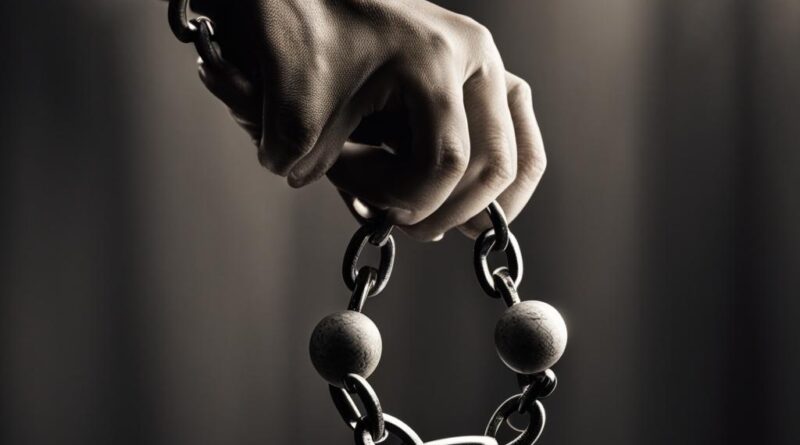Guidance on Dropping Theft Charges in Texas: Detailed Steps
If you are facing theft charges in Texas, it is important to understand the steps you can take to improve your chances of getting the charges reduced or dropped altogether. This article will provide you with guidance on how to handle theft charges in Texas, including legal insights and detailed steps to follow.
Key Takeaways
- Learn how to navigate the legal system to handle theft charges in Texas effectively.
- Consult with an experienced criminal defense attorney immediately upon being accused.
- Understand the factors that may influence a prosecutor’s decision to dismiss the charges.
- Explore options like pretrial diversion programs, plea bargains, or proving innocence.
- Be aware of the penalties associated with theft charges, including potential felony charges.
Understanding Theft Charges in Texas
When accused of theft in Texas, it is crucial to have a clear understanding of the legal system and the nature of the charges against you. This knowledge empowers you to make informed decisions and take appropriate actions to protect your rights. It is important to remain calm and avoid saying anything that could be used against you in court. Contacting an attorney immediately is essential to start preparing your defense.
One key aspect to understand is that Texas classifies theft charges based on the value of the stolen property. The severity of the charge and the potential penalties vary accordingly. It is crucial to familiarize yourself with the legal options available to you and consult with an experienced criminal defense attorney to determine the best approach for your specific case.
The legal system can be complex and overwhelming, especially when facing criminal charges. Having a knowledgeable attorney by your side provides guidance and support throughout the process. They can help you navigate the legal system, protect your rights, and work towards getting the charges reduced or dropped. Your attorney will assess the evidence against you, identify any potential weaknesses in the prosecution’s case, and develop a strategic defense strategy tailored to your situation.
Overall, understanding theft charges in Texas is essential for anyone facing such accusations. By familiarizing yourself with the legal system and seeking professional legal guidance, you can improve your chances of achieving a favorable outcome. Remember, the information provided here serves as a starting point, and consulting with a qualified attorney is critical in developing a strong defense strategy specific to your case.
Factors Affecting the Dismissal of Theft Charges
When facing theft charges, it is important to understand the factors that can influence the dismissal of these charges. Working with an experienced criminal defense attorney is crucial, as they can guide you through the legal process and help you choose the best strategy for your case.
The success rates of various approaches to defending against theft charges can vary widely. An experienced attorney will assess the specific circumstances of your case and help you navigate through the complexities of the legal system. They will also ensure that all necessary considerations are made and appropriate strategies are implemented.
Attempting to defend yourself against theft charges without proper legal representation can be extremely risky. There are many intricacies involved, such as understanding the evidence, presenting compelling arguments, and addressing any potential weaknesses in the prosecution’s case. A skilled attorney will have the knowledge and expertise to navigate these challenges effectively.

Legal Options for Dismissing Theft Charges
When it comes to dismissing theft charges, there are several legal options that can be explored. These options will depend on the specific circumstances of your case and the advice of your attorney. Some potential strategies include:
- Seeking a plea bargain: This involves negotiating with the prosecution to reach a mutually beneficial agreement, which may result in the charges being dropped or reduced.
- Presenting evidence to prove innocence: If you believe you are wrongly accused, gathering evidence and presenting a strong defense to prove your innocence can be a viable option.
- Exploring pretrial diversion programs: Some jurisdictions offer programs that allow defendants to complete certain requirements, such as community service or counseling, in exchange for having the charges dismissed.
Ultimately, the specific approach to dismissing theft charges will depend on the unique circumstances of your case. Consulting with an experienced criminal defense attorney will ensure that you explore all available legal options and make informed decisions throughout the process.
Dropping Theft Charges: Understanding the Prosecutor’s Decision
When facing theft charges, many individuals wonder if the charges can be dropped, especially if the victim requests it. It’s important to understand that while the victim’s request may be considered, the ultimate decision to drop the charges lies with the prosecutor. The prosecutor carefully evaluates the gravity of the case and the evidence presented before making a decision.
The prosecutor’s decision is influenced by various factors, including the strength of the evidence against the accused and the potential impact on public safety. While the victim’s wishes may carry weight, they are not the sole determining factor. The prosecutor’s primary duty is to consider the overall merits of the case and make a decision that upholds justice.
Consulting with a qualified attorney is crucial when navigating the process of dropping theft charges. An experienced criminal defense attorney can help build a strong case and advocate for the best possible outcome. They can provide guidance on the legal options available and help navigate through the complexities of the legal system, increasing the chances of a favorable resolution.
Factors Influencing the Prosecutor’s Decision
The prosecutor takes into account various factors when deciding whether to pursue or drop theft charges. These factors include:
- The strength of the evidence against the accused
- The severity of the alleged offense
- The potential impact on public safety
- The victim’s wishes
While the victim’s wishes are considered, they do not guarantee the dismissal of charges. The prosecutor carefully weighs all these factors before making a decision. Therefore, it is crucial for the accused to have competent legal representation who can present compelling arguments and advocate for their best interests.
| Factors Influencing Prosecutor’s Decision | Impact on Dropping Charges |
|---|---|
| Strength of evidence | Significant evidence against the accused makes it less likely for charges to be dropped. |
| Severity of alleged offense | More serious offenses are less likely to have charges dropped. |
| Potential impact on public safety | If the prosecutor believes there is a risk to public safety, charges are less likely to be dropped. |
| Victim’s wishes | While considered, the victim’s wishes alone are not sufficient to guarantee charges being dropped. |
It is crucial for those facing theft charges to understand the factors that influence the prosecutor’s decision. By seeking the guidance of an experienced criminal defense attorney, individuals can proactively build a strong defense strategy and navigate the legal process effectively.
Exploring Options for Having Theft Charges Dropped
When facing theft charges, defendants often have various options for having the charges dropped. It is essential to discuss these options with a qualified criminal defense attorney to determine the best course of action for your specific case. The following are three common approaches that defendants accused of petty theft can consider:
- Participating in a Pretrial Diversion Program: In some jurisdictions, defendants may have the opportunity to participate in a pretrial diversion program. This program typically involves completing certain requirements, such as community service or theft education classes, in exchange for the charges being dropped. It is important to consult with an attorney to determine if this option is available in your jurisdiction and if you meet the eligibility criteria.
- Accepting a Plea Bargain: Another option for having theft charges dropped is to accept a plea bargain. This involves negotiating with the prosecutor to reach a mutually agreeable resolution. In some cases, a plea bargain may involve pleading guilty to a lesser charge or completing certain conditions in exchange for the charges being dropped. An experienced criminal defense attorney can advocate for your interests during these negotiations and help you assess the potential benefits and drawbacks of accepting a plea bargain.
- Proving Innocence: If you believe you are innocent of the theft charges, you may choose to proceed to trial and present evidence to prove your innocence. This option can be more complex and time-consuming, as it requires building a strong defense and presenting a convincing case in court. An experienced attorney can guide you through this process and help you gather and present the necessary evidence to support your innocence.
Each option for having theft charges dropped has its own set of requirements, considerations, and potential outcomes. It is crucial to consult with a criminal defense attorney who can assess the specific details of your case and provide personalized guidance on the best strategy to pursue.
Table: A Comparison of Options for Having Theft Charges Dropped
| Option | Key Considerations | Potential Outcome |
|---|---|---|
| Pretrial Diversion Program | – Availability and eligibility criteria vary by jurisdiction – Completion of program requirements – Charges may be dropped upon successful completion |
Charges dropped |
| Plea Bargain | – Negotiation with the prosecutor – Potential for reduced charges or conditions – Possible guilty plea |
Charges dropped or reduced |
| Proving Innocence at Trial | – Strong defense strategy – Gathering and presenting evidence – Court proceedings and potential trial |
Acquittal and charges dropped |
It is important to note that the viability and potential outcomes of each option may vary depending on the specific circumstances of your case. Consulting with an experienced criminal defense attorney is crucial in order to fully understand the implications of each option and make an informed decision that maximizes your chances of having the theft charges dropped.

Understanding the Affidavit of Nonprosecution in Texas
An affidavit of nonprosecution is a legal document in Texas where a victim of a crime expresses their desire not to press charges against the accused. It is a written statement that outlines the victim’s intention to drop the case and not proceed with the prosecution. However, it is important to note that the decision to drop charges ultimately rests with the district attorney’s office, who considers various factors before making a final decision.
The victim’s desire not to press charges, as expressed in the affidavit, is one factor that the district attorney may take into consideration. However, it does not guarantee an automatic dismissal of the case. Prosecutors weigh multiple factors, such as the severity of the alleged offense, the evidence available, and the overall circumstances of the case.
In some instances, prosecutors may be skeptical of affidavits of nonprosecution, as they may question the victim’s true intent or believe that dropping the charges is not in the best interest of the public or justice system. Therefore, it is crucial to have strong legal representation to navigate through this process and present compelling arguments to the prosecutor.
Factors Influencing a Prosecutor’s Decision
When deciding whether to pursue charges, prosecutors in theft cases consider a range of factors that go beyond the victim’s wishes. While the victim’s desires may be taken into consideration, they do not guarantee the dismissal of charges. The prosecutor will carefully assess the specific circumstances of the case, the evidence available, and the severity of the alleged offense.
One factor that prosecutors may consider is the affidavit of nonprosecution. This legal document is a written statement from the victim expressing their desire not to press charges against the accused. However, prosecutors may still choose to proceed with the case despite the victim’s wishes. They may be skeptical of the affidavit’s credibility and carefully evaluate other factors before making a decision.
Prosecutors have a duty to the public and to uphold the law, which means they must consider the interests of justice as a whole. They evaluate the strength of the evidence against the accused, including any video recordings, eyewitness testimonies, or other supporting materials. The prosecutor will also take into account the potential impact of the case on the community and the need for deterrence.
Evaluating a Prosecutor’s Consideration
When facing theft charges, it is important to have an experienced criminal defense attorney who can advocate for your interests and present compelling arguments to the prosecutor. Your attorney can help contextualize the evidence, challenge its admissibility or credibility, and negotiate on your behalf. They can also highlight any mitigating factors that may influence the prosecutor’s decision to reduce or drop the charges.
| Factors Considered by Prosecutors | Key Insights |
|---|---|
| Evidence Strength | The prosecutor will evaluate the quality and quantity of evidence against the accused, including video recordings, eyewitness testimonies, and any other supporting materials. |
| Severity of the Offense | The seriousness of the alleged theft, including the value of the stolen items, can influence the prosecutor’s decision. |
| Public Interest | Prosecutors consider the potential impact of the case on the community and the need for deterrence when determining whether to pursue charges. |
| Mitigating Factors | Your defense attorney can present any mitigating factors, such as lack of criminal history or extenuating circumstances, that may influence the prosecutor’s decision. |
Ultimately, the decision to pursue charges or dismiss them lies with the prosecutor, who weighs multiple factors in accordance with their professional judgment and the interests of justice. By having a skilled criminal defense attorney by your side, you can increase your chances of a favorable outcome and navigate through the complexities of the legal process in theft cases.
Challenging the Evidence in a Shoplifting Case
In many shoplifting cases, the prosecution relies on evidence such as video recordings and eyewitness testimonies to build their case. However, it is important to remember that this evidence can be challenged in court. Skilled criminal defense attorneys are well-versed in exploring the weaknesses of such evidence and raising doubts about its admissibility and credibility.
One strategy that can be employed is questioning the quality and clarity of video recordings. Factors such as poor lighting, obstructed views, or the absence of a clear identification of the accused can cast doubt on the accuracy of the evidence. Eyewitness testimonies can also be subject to scrutiny, as human memory is fallible and prone to errors.
“The quality and reliability of video recordings and eyewitness testimonies can often be called into question. It is essential to thoroughly analyze the evidence presented by the prosecution and challenge its credibility to build a strong defense strategy.”
Additionally, a skilled defense attorney can challenge the procedures used during interrogations, ensuring that the accused’s rights were protected and that any statements obtained unlawfully are deemed inadmissible. If evidence was obtained through an illegal search or seizure, it can be excluded from court proceedings, weakening the prosecution’s case.
By thoroughly examining the evidence and leveraging legal arguments, a strong defense strategy can be developed to challenge the prosecution’s case in a shoplifting trial.

Table: Common Challenges to Evidence in Shoplifting Cases
| Types of Evidence | Potential Challenges |
|---|---|
| Video Recordings |
|
| Eyewitness Testimonies |
|
| Interrogation Procedures |
|
| Search and Seizure |
|
Penalties for Shoplifting and Theft Charges in Texas
Shoplifting and theft charges in Texas can result in severe penalties, varying based on the value of the loss. The legal system distinguishes between misdemeanor and felony charges, with different consequences for each.
For misdemeanor theft charges, which typically involve smaller losses, individuals may face fines, jail time, or a combination of both. The specific penalties depend on factors such as the value of the stolen items and the defendant’s criminal history.
Felony theft charges, on the other hand, involve larger losses and can lead to more severe repercussions. The potential penalties for felony charges may include substantial fines and significant prison sentences. The severity of the consequences is usually proportional to the value of the stolen property and the defendant’s criminal record.

The Difference Between Misdemeanor and Felony Charges
Understanding the distinction between misdemeanor and felony theft charges is essential. Misdemeanor charges are typically associated with lower-value thefts, often categorized as petty theft or theft by deception. In Texas, the threshold for misdemeanor charges is usually $750 or less. On the other hand, felony theft charges involve higher-value thefts and can apply to cases where the stolen property exceeds $750. The severity of the charge may further escalate based on the value, potentially resulting in enhanced penalties and a more detrimental impact on the individual’s criminal record.
| Theft Value | Misdemeanor Charge | Felony Charge |
|---|---|---|
| $50 or less | Class C misdemeanor | N/A |
| $50 to $500 | Class B misdemeanor | N/A |
| $500 to $1,500 | Class A misdemeanor | N/A |
| $1,500 to $20,000 | N/A | State jail felony |
| $20,000 to $100,000 | N/A | Third-degree felony |
| $100,000 to $200,000 | N/A | Second-degree felony |
| Over $200,000 | N/A | First-degree felony |
It is important to note that these penalties are subject to change and can vary based on the specifics of the case and the jurisdiction. Consulting with a criminal defense attorney experienced in theft charges is crucial for understanding the possible consequences specific to your situation.
Seeking Legal Representation
When facing shoplifting or theft charges in Texas, it is essential to seek legal representation from a knowledgeable criminal defense attorney. An experienced attorney can guide you through the legal process, help you understand the potential penalties, and develop an effective defense strategy tailored to your case. They will work to protect your rights and fight for the best possible outcome.
Felony Shoplifting Charges in Texas
Felony shoplifting charges in Texas can have severe consequences for individuals accused of this offense. In these cases, the potential penalties and sentences are enhanced due to various factors, including the accused person’s criminal history and the characteristics of the alleged victim. The value of the items stolen also plays a significant role in determining whether the theft is charged as a felony.
When facing felony shoplifting charges, it is crucial to seek the assistance of an experienced criminal defense attorney. They can provide guidance and support throughout the legal process, ensuring your rights are protected and fighting against these serious charges.
A conviction for felony shoplifting can have long-lasting implications, extending beyond the immediate penalties. It may result in difficulties in finding future employment, as employers often conduct background checks. Therefore, building a strong defense strategy and challenging the evidence presented by the prosecution is vital. An attorney can help analyze the case, identify any procedural errors, and leverage potential legal arguments to strengthen your defense.

Enhancement Factors and Potential Penalties
| Enhancement Factors | Potential Penalties |
|---|---|
| Prior criminal convictions | Increased jail or prison sentence |
| High-value stolen items | Lengthy incarceration and substantial fines |
| Victim’s vulnerability (e.g., elderly or disabled) | Enhanced penalties, potentially leading to a life sentence |
A person’s criminal history, including prior convictions, can significantly impact the severity of the punishment for felony shoplifting charges. Repeat offenders may face increased jail or prison sentences compared to those with no previous criminal record.
Furthermore, the value of the stolen items is another crucial factor. High-value thefts can lead to lengthier periods of incarceration and substantial fines. Additionally, if the alleged victim is vulnerable, such as being elderly or disabled, the penalties may be further enhanced, potentially resulting in a life sentence.
Given the serious consequences of felony shoplifting charges in Texas, it is essential to consult with a knowledgeable criminal defense attorney who can evaluate your case, provide guidance, and craft a strong defense strategy. Their expertise and experience can make a significant difference in achieving the best possible outcome and protecting your future opportunities.
First Time Shoplifting Charges in Texas
First-time shoplifting charges in Texas can have significant implications, including the creation of a permanent criminal record. However, there may be options available to individuals facing these charges to potentially avoid long-term consequences. One such option is a deferred prosecution program, which provides an opportunity for the charges to be dismissed and the criminal record expunged for eligible first-time offenders.
A deferred prosecution program typically involves a set of conditions that must be met by the accused, such as completing community service, attending counseling, or participating in educational programs. Successful completion of these requirements demonstrates accountability and a commitment to rehabilitation. Once the program is successfully completed, the charges may be dismissed, allowing for a fresh start without the burden of a criminal record.
It is important to consult with a knowledgeable criminal defense attorney to determine if you qualify for a deferred prosecution program and to guide you through the process. Your attorney can help evaluate your case, assess the likelihood of a successful outcome, and advocate for your rights. They can also provide valuable advice and representation throughout the entire legal proceedings, ensuring you make informed decisions and achieve the best possible outcome.

Understanding Deferred Prosecution Programs in Texas
| Requirement | Description |
|---|---|
| Complete Community Service | Engage in a specified number of hours of community service to contribute positively to the community. |
| Attend Counseling | Participate in counseling or therapy sessions to address any underlying issues that may have contributed to the shoplifting incident. |
| Complete Educational Programs | Attend classes or workshops that provide insights into the consequences of shoplifting and strategies for overcoming the behavior. |
| Stay Law-Abiding | Avoid any further criminal activity during the duration of the program and comply with all laws and regulations. |
Conclusion
To successfully navigate the process of dropping theft charges in Texas, it is crucial to have a solid understanding of the legal system and the available options. Seeking guidance from an experienced criminal defense attorney can provide the legal insights you need to improve your chances of getting the charges reduced or dropped altogether.
Remember, each case is unique, and there are various factors that influence a prosecutor’s decision. Having a skilled attorney by your side can help you develop a strong defense strategy tailored to your specific circumstances.
When facing theft charges, seeking legal representation is essential. A knowledgeable attorney can guide you through the complexities of the legal process, help you explore all available options, and advocate for your best interests. By following the appropriate steps and working closely with your attorney, you can increase your chances of achieving the best possible outcome in your case.
FAQ
What should I do if I am accused of theft in Texas?
It is crucial to understand the legal system and the nature of the charges against you. Remain calm, avoid saying anything that could be used against you, and contact an attorney immediately to start preparing your defense.
Can theft charges be dropped in Texas?
The decision to drop theft charges lies with the prosecutor, not the victim. While the victim’s wishes may be considered, the prosecutor is not obligated to dismiss the charges solely based on the victim’s request.
What are the options for having theft charges dropped?
Defendants accused of petty theft in Texas often have three options: participating in a pretrial diversion program, accepting a plea bargain that results in dropped charges, or proving their innocence. Each option has its own requirements and considerations.
What is an affidavit of nonprosecution in Texas?
An affidavit of nonprosecution is a written statement where a victim expresses their desire not to press charges against the accused. While it can be considered by the prosecutor, it does not guarantee the dismissal of the case.
What factors influence a prosecutor’s decision to drop theft charges?
Prosecutors consider various factors, including the victim’s wishes, the circumstances of the case, the evidence available, and the severity of the alleged offense.
How can I challenge the evidence in a shoplifting case?
A skilled criminal defense attorney can challenge the admissibility and credibility of video recordings, eyewitness testimonies, and interrogations. They can also challenge evidence obtained through illegal search or seizure.
What are the penalties for shoplifting and theft charges in Texas?
The penalties vary depending on the value of the loss. Misdemeanor charges can result in fines, jail time, or both, while felony charges can lead to more severe penalties, including prison sentences.
What are the consequences of felony shoplifting charges in Texas?
Felony shoplifting charges can result in enhanced penalties based on criminal history or the characteristics of the alleged victim. They can also have long-lasting consequences, such as difficulties in finding employment and background checks.
Can first-time shoplifting charges in Texas be dropped?
Certain individuals may qualify for deferred prosecution programs that can lead to the dismissal of charges and the expungement of the record, especially for first-time offenders.

